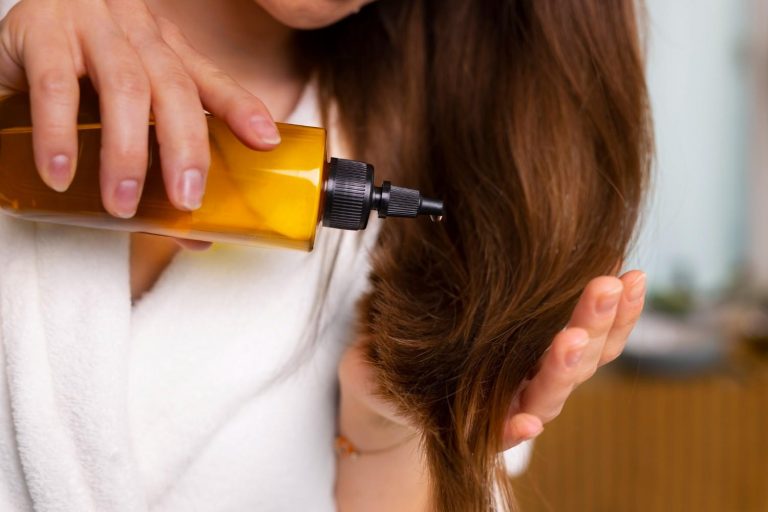Did you know that the health of your hair can be significantly influenced by what you eat? It’s true! While we often focus on shampoos, conditioners, and treatments, the real magic can happen right on your plate. If you’re looking to boost your hair growth, incorporating certain vegetables into your diet might just do the trick. Here, we’ll explore five powerhouse veggies that can transform your hair growth journey.
Contents
1. Spinach: The Green Giant of Hair Health
Why Spinach?
Spinach is often hailed as a superfood, and for good reason. Packed with vitamins A and C, iron, and folate, this leafy green not only nourishes your body but also supports healthy hair growth.
What’s in It for Your Hair?
- Vitamins A and C: These vitamins help in the production of sebum, the natural oil that keeps your scalp moisturized. A healthy scalp is crucial for hair growth.
- Iron: A deficiency in iron can lead to hair loss. Spinach is rich in non-heme iron, which helps transport oxygen to your hair follicles, promoting growth.
How to Incorporate Spinach
You can easily add spinach to your diet in various forms. Toss it in salads, blend it into smoothies, or sauté it with garlic for a delicious side dish. I personally love adding a handful to my morning smoothie—it’s a great way to start the day!
Pros and Cons
Pros: Nutrient-dense, versatile, and easy to prepare.
Cons: Some people may experience digestive issues if they consume too much raw spinach.
2. Sweet Potatoes: The Beta-Carotene Booster
Why Sweet Potatoes?
Sweet potatoes are not only a tasty treat but also a fantastic source of beta-carotene, which the body converts into vitamin A. This nutrient plays a vital role in maintaining healthy hair.
What’s in It for Your Hair?
- Beta-Carotene: This antioxidant helps in the production of sebum, keeping your scalp hydrated and hair shiny.
- Vitamins B6 and C: These vitamins support overall hair health and strengthen hair follicles.
How to Incorporate Sweet Potatoes
Roast them, mash them, or even blend them into soups. They’re incredibly versatile! I often make sweet potato fries—they’re a delicious and healthy alternative to regular fries.
Pros and Cons
Pros: High in antioxidants, delicious, and filling.
Cons: Can be high in carbohydrates, so moderation is key if you’re watching your carb intake.
3. Bell Peppers: The Colorful Hair Heroes
Why Bell Peppers?
Bell peppers, especially the red variety, are packed with vitamin C—an essential nutrient for collagen production, which strengthens hair.
What’s in It for Your Hair?
- Vitamin C: This vitamin aids in the absorption of iron, which is crucial for hair growth. It also helps in the production of collagen, providing structural support to your hair.
- Antioxidants: Bell peppers are rich in antioxidants that protect your hair from damage.
How to Incorporate Bell Peppers
Use them in salads, stir-fries, or as a crunchy snack with hummus. I love adding diced peppers to my omelets for a burst of color and flavor.
Pros and Cons
Pros: Low in calories, versatile, and add a pop of color to your dishes.
Cons: Some people may find them hard to digest.
4. Carrots: The Crunchy, Hair-Boosting Snack
Why Carrots?
Carrots are another excellent source of beta-carotene, making them a great addition to your hair care regimen.
What’s in It for Your Hair?
- Beta-Carotene: Just like sweet potatoes, carrots convert to vitamin A, promoting a healthy scalp and shiny hair.
- Biotin: Carrots contain biotin, which is known to improve hair strength and growth.
How to Incorporate Carrots
Snack on raw carrots or add them to salads and stir-fries. I often blend them into smoothies or make carrot sticks with dip. They’re a crunchy, satisfying snack!
Pros and Cons
Pros: Easy to prepare, portable, and great for snacking.
Cons: Overconsumption can lead to carotenemia, a harmless condition that turns your skin slightly orange.
5. Kale: The Nutritional Powerhouse
Why Kale?
Kale has gained popularity as a superfood, and it’s not just a fad. This leafy green is loaded with nutrients that can benefit hair growth.
What’s in It for Your Hair?
- Vitamins A, C, and K: These vitamins are essential for maintaining a healthy scalp and promoting hair growth.
- Calcium and Iron: Both minerals contribute to the overall health of your hair and scalp.
How to Incorporate Kale
Kale can be used in salads, smoothies, or even as kale chips. I love massaging kale with olive oil and lemon juice for a refreshing salad.
Pros and Cons
Pros: Extremely nutrient-dense and versatile.
Cons: Some people may find its flavor too bitter.
FAQs
1. How often should I eat these vegetables for hair growth?
Incorporating a variety of these vegetables into your diet several times a week can help promote hair growth. Aim for at least a serving of one or two of these veggies daily.
2. Can I take supplements instead of eating these vegetables?
While supplements can help, whole foods provide a range of nutrients that supplements may lack. Plus, the fiber in veggies is essential for digestion.
3. Are there any side effects of eating too many of these vegetables?
Generally, these vegetables are safe to consume in moderation. However, excessive intake of certain foods, like spinach, can lead to digestive issues.
4. What other lifestyle changes can help with hair growth?
In addition to a healthy diet, staying hydrated, managing stress, and avoiding harsh hair treatments can also promote hair growth.
Conclusion
Incorporating these five vegetables into your diet can be a game-changer for your hair growth journey. Spinach, sweet potatoes, bell peppers, carrots, and kale each bring unique benefits to the table, providing essential nutrients that support healthy hair.
So, the next time you’re planning your meals, think about how you can include these hair-boosting veggies. Remember, healthy hair starts from within, and a balanced diet is just as important as the products you use. Happy eating!
Disclaimer: This article is for educational purposes only and is not a substitute for professional medical advice. Always consult a qualified healthcare provider before making changes to your health routine.
References
- Kader, A. A., & Fadhl, B. M. (2020). Nutritional aspects of hair health: A systematic review. Journal of Dermatological Treatment, 31(3), 295-301. https://doi.org/10.1080/09546634.2019.1633016
- Mayo Clinic. (2022). Nutritional deficiencies and hair loss. Retrieved from https://www.mayoclinic.org
- NIH. (2021). The role of vitamins and minerals in hair growth. Retrieved from https://ods.od.nih.gov
Get Your FREE Natural Health Guide!
Subscribe now and receive our exclusive ebook packed with natural health tips, practical wellness advice, and easy lifestyle changes, delivered straight to your inbox.




